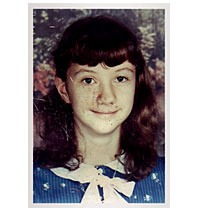
Christine Ann Diefenbach was 14 years old when she was murdered. Her bloodied, bruised body, still wearing a white ski jacket, was found in a rail yard in Queens a few hours after she left her house one February morning to pick up a Sunday paper. Her pants had been pulled down around her knees. Nineteen years later, her case remains unsolved. It’s one of the thousands of city homicides in the hands of the NYPD Cold Case Squad, a ten-year-old unit with a certain romantic aura around it.
But now the squad itself is looking like it might get fitted for a toe tag, a victim of post-9/11 priorities. “People are bailing out of there left and right,” said Vito Spano, the former commanding officer of the squad, who left the NYPD in 2004. “It’s not high on the agenda if it’s not about terrorism,” says ex-detective Andy Rosenzweig. “There’s a lack of interest, a lack of training, and a lack of resources.” This year, homicides are up slightly in the city, but the Cold Case unit has lost more than 70 percent of its members, dropping to 12 from over 40. The remaining detectives must handle dozens of cases at a time. “Guys weren’t being replaced, and the workload was getting heavier,” says one detective who just recently retired after 23 years. “With the minimum amount of manpower, and people retiring and detectives not getting replaced, it’s tough. You have to prioritize. You have to ask, What’s the chance of successfully solving this case?”
Stacy Horn, who recently wrote about the squad in her book The Restless Sleep, described them as “talented, brilliant misfits. Detective geeks who like to kick ass … [and] that is exactly what they did.” Largely autonomous from the rest of the department, they’ve investigated more than 2,000 cases—stalking drug dealers, tapping inmates for information, and traveling across the country tracking down witnesses whose stories may have changed—and cleared over 600.
But that success looks like it’s going to be a thing of the past. Detective Tommy Wray, whose work on the Diefenbach case was profiled by Horn in her book, published a letter in the Detectives’ Endowment Association newsletter on the event of his retirement. “It was always my firm intention not to retire without bringing some form of closure to the Diefenbach family, hopefully in the way of arrest of the individual(s) responsible for Christine’s death,” he wrote. “The straw that broke the camel’s back was a supervisor who just could not understand that these cases do not get solved overnight, that he needed to trust his detectives who are in fact working for him and doing the right thing each and every day. A detective in NYC can put up with a lot of BS, but not when his direct supervisor doesn’t trust him or the unit in general.”
The supervisor in question is Chief Joseph J. Reznick, who came to the squad in September 2003, set on trimming costs. He got under the skin of the detectives, reining in their cell-phone use and curtailing their overtime. This summer, he raised the ire of the DEA when he put in for the transfer of six Cold Case detectives in the Bronx, claiming that their performance wasn’t up to par. The move would have gutted the unit, in an area that has seen a 21 percent increase in homicides this year. DEA president Michael Palladino intervened, and the detectives kept their jobs—but Palladino says what happened was part of a pattern. Reznick didn’t return calls seeking comment.
“You have to do something about all these old murder cases,” says a frustrated former detective. “You just can’t disregard them. You potentially have the tools in place to do it.” This is a sticking point for many of the detectives, who still smart when the subject of DNA comes up. In 2003, the unit was awarded a $500,000 Justice Department grant to go back into old case files and cull DNA, but the undermanned department has not used all the funds. Troves of evidence still sits untouched in the NYPD property clerk’s office, and with it, the potential to find answers. NYPD spokesman Paul Browne says that the drop in the number of Cold Case detectives has to be seen in the context of the fact that the department is smaller post-9/11. There are 28 percent fewer detectives than there were five years ago. But he does cop to a change in priorities, noting that while “there’s a certain satisfaction” in closing a cold case, the department’s “mission and the focus becomes the immediate crimes because that’s where you have the most likelihood of capturing the person responsible and stopping them from killing again.” But for John Diefenbach, Christine’s father, his case isn’t cold. “There are a lot of us that depend on them. That’s our hope. Because really, that’s all we have left.”
Have good intel? Send tips to intel@nymag.com.